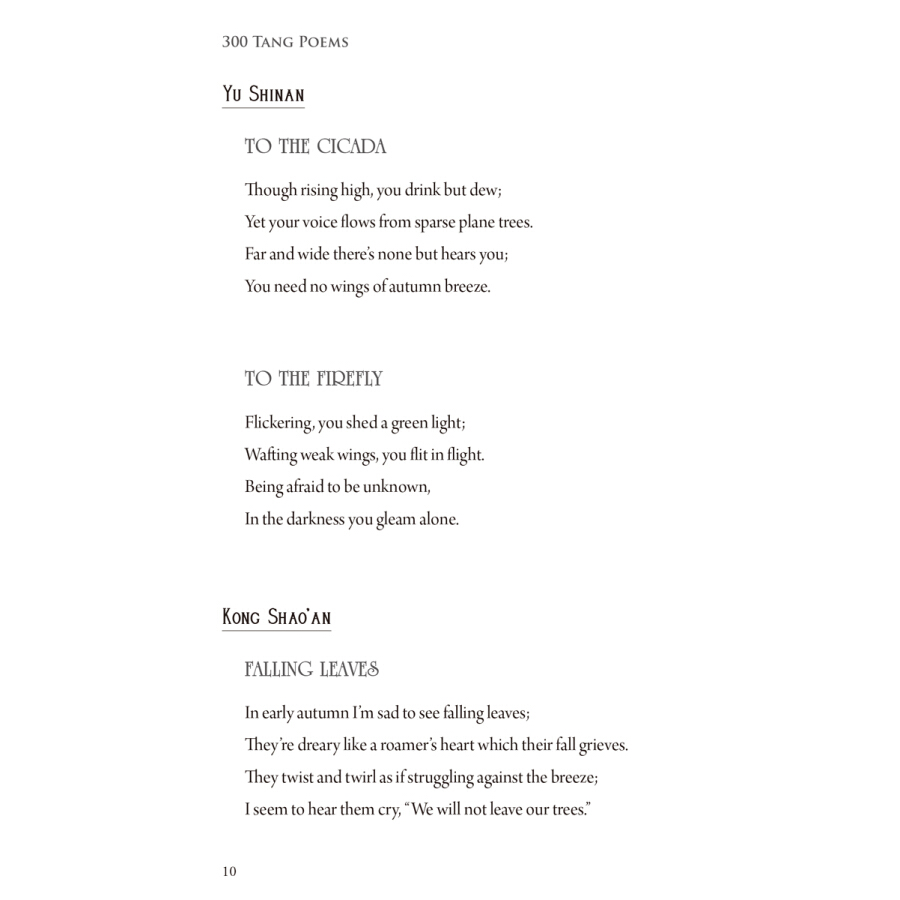
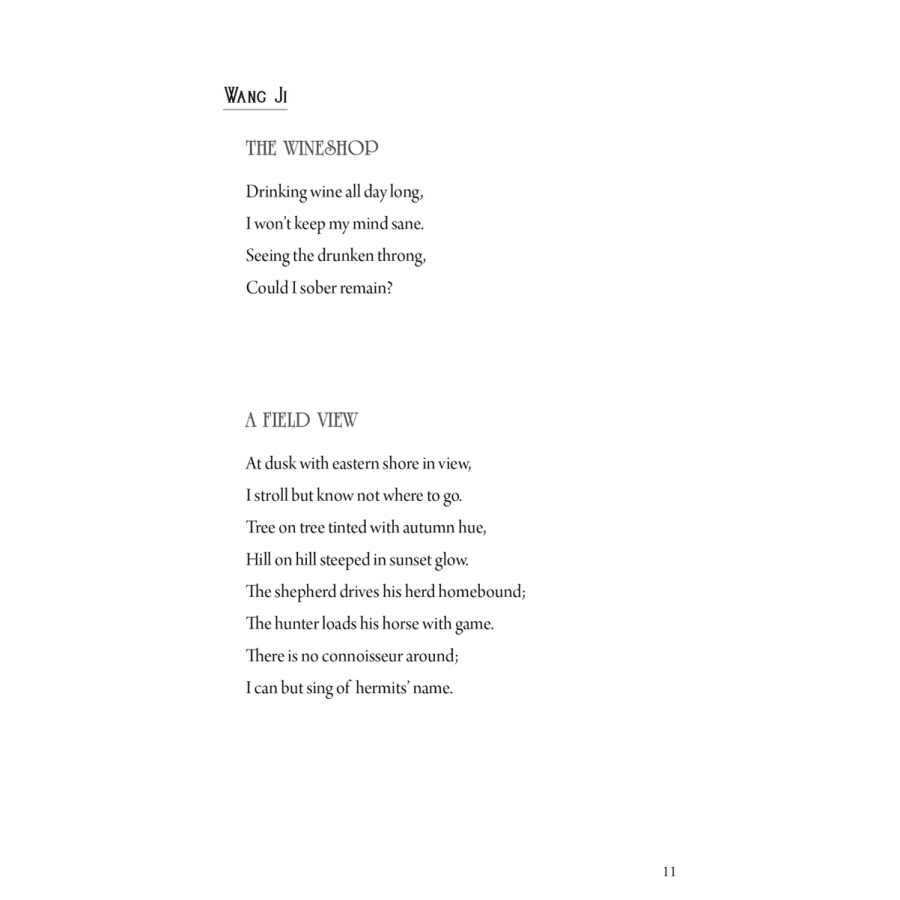
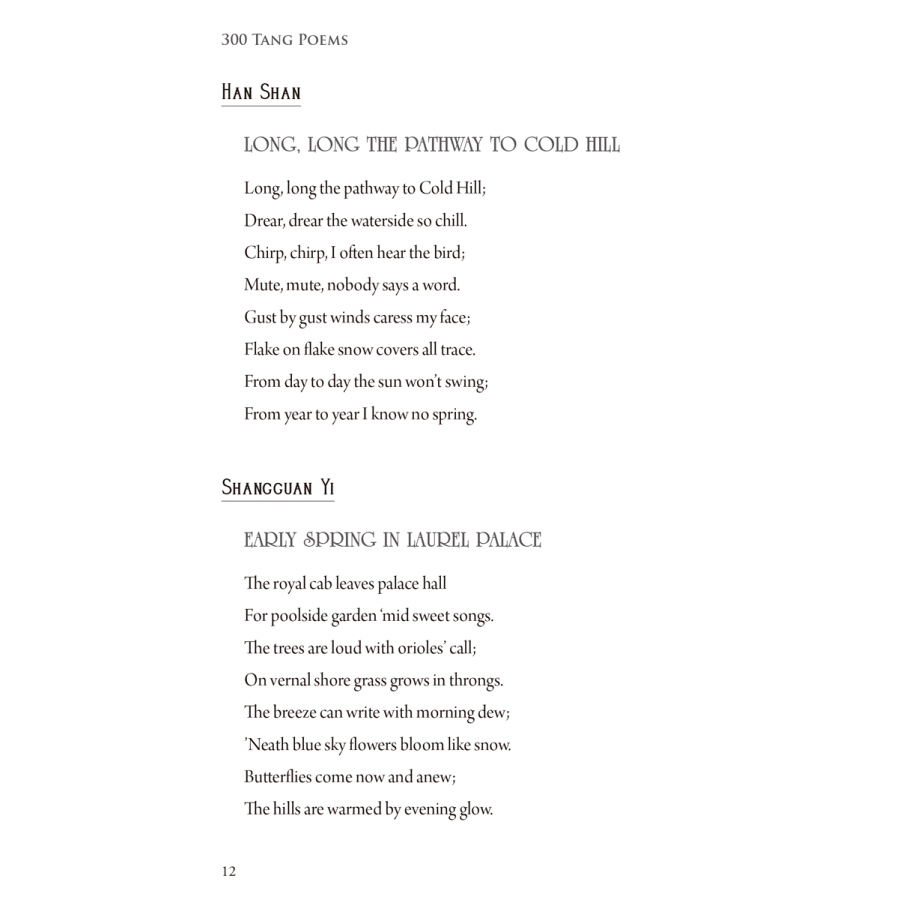
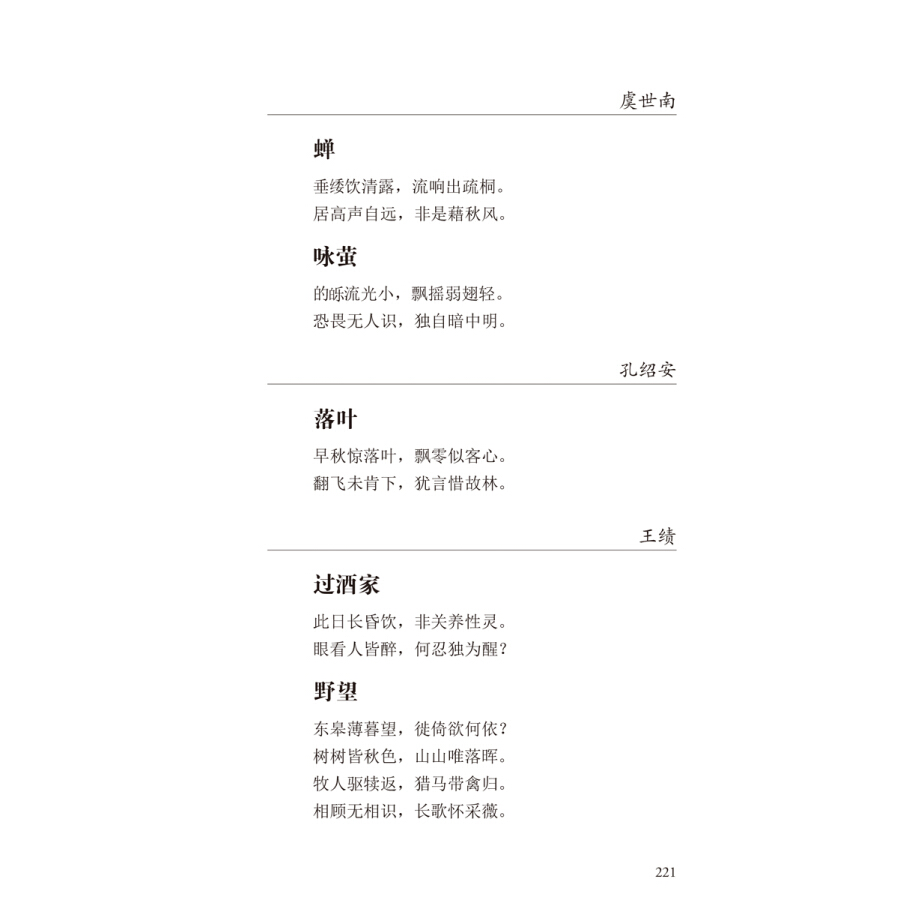
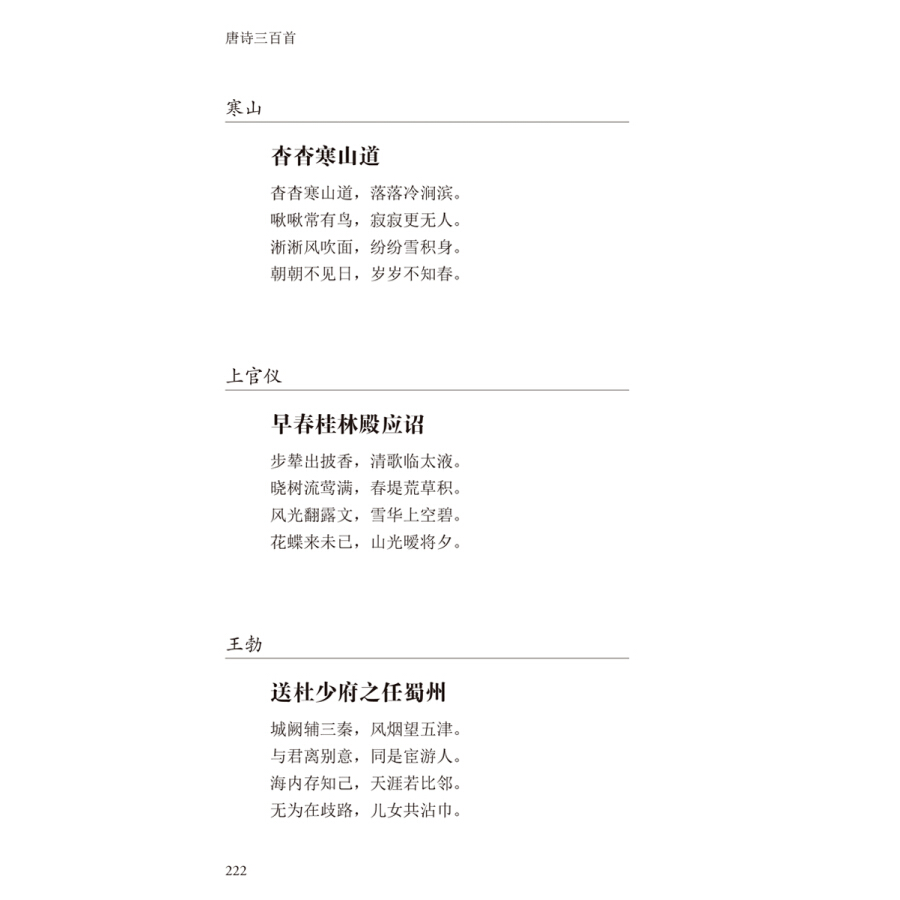
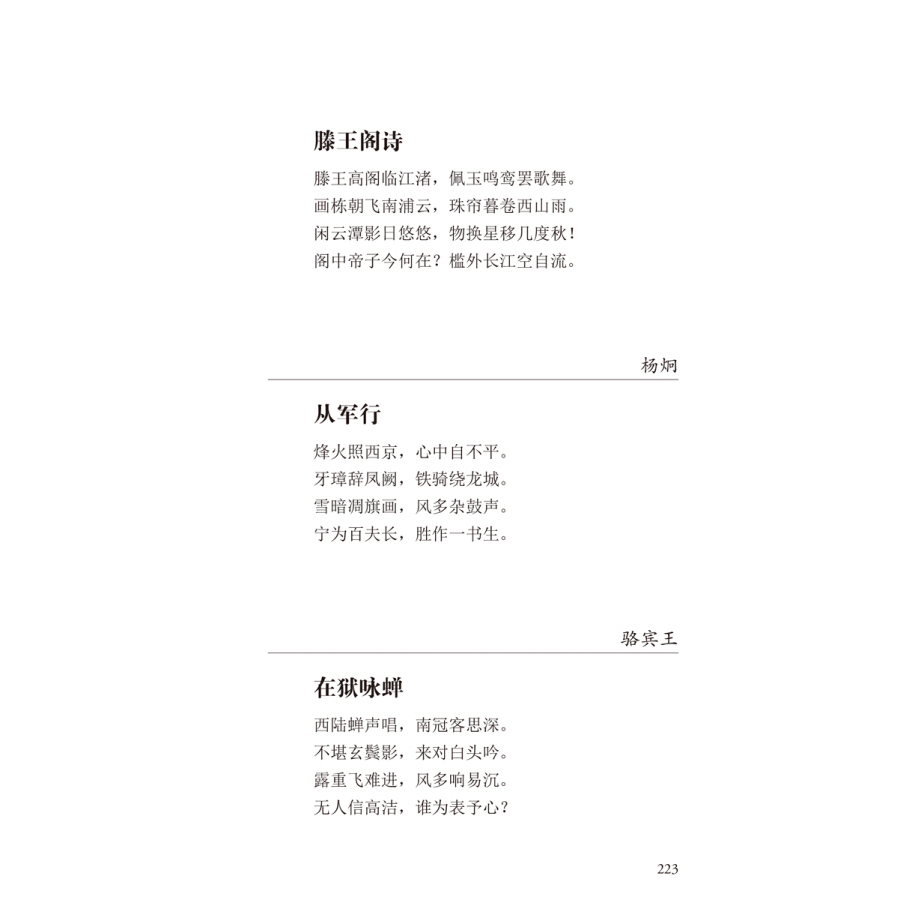
Du Xunhe
A WIDOW LIVING IN THE MOUNTAINS
Her husband killed in war, she lives in a thatched hut,
Wearing coarse hemper clothes and a flaxen hair.
She should pay taxes though down mulberries were cut,
And before harvest though fields and gardens lie bare.
She has to eat wild herbs together with their root,
And burn as fuel leafy branches from the trees.
However deep she hides in mountains as a brute,
From oppressive taxes she can never be free.
杜荀鹤
山中寡妇
夫因兵死守蓬茅,麻苎衣衫鬓发焦。
桑柘废来犹纳税,田园荒后尚征苗。
时挑野菜和根煮,旋斫生柴带叶烧。
任是深山更深处,也应无计避征徭。
Huang Chao
TO THE CHRYSANTHEMUM
In soughing western wind you blossom far and nigh;
Your fragrance is too cold to invite butterfly.
Some day if I as Lord of Spring come into power,
I’d order you to bloom together with peach flower.
THE CHRYSANTHEMUM
When autumn comes, the mountain-climbing day is nigh;
My flower blows when other blooms come to an end.
In battle array my fragrance rises sky-high;
The capital with my golden armour will blend.
黄巢
题菊花
飒飒西风满院栽,蕊寒香冷蝶难来。
他年我若为青帝,报与桃花一处开。
菊花
待到秋来九月八,我花开后百花杀。
冲天香阵透长安,满城尽带黄金甲。
Wang Jia
A SPRING FEAST
The paddy crops wax rich at the foot of Goose-lake Hill;
Door half closed, pigs in sty and fowls in cage are still.
The shade of mulberries lengthens, the feast is o’er,
All drunken villagers are helped back to their door.
AFTER THE RAIN
Before the rain I still see blooming flowers;
Only green leaves are left after the showers.
Over the wall pass butterflies and bees;
I wonder if spring’s in my neighbor’s trees.
王驾
社日
鹅湖山下稻粱肥,豚栅鸡栖半掩扉。
桑柘影斜春社散,家家扶得醉人归。
王驾
雨晴
雨前初见花间蕊,雨后全无叶底花。
蜂蝶纷纷过墙去,却疑春色在邻家。
Preface
It is said that the 21st century will be an age of globalization. The new generation worthy of the new age should be bred not only in its national culture but also in the global culture. Therefore, each nation should try to globalize its culture, in other words, to make its culture known to the world and become a part of the global culture so as to make it more brilliant.
If the 20th century may be said to be an American age, then the 19th was a British age and the 18th a French one. If we go further back, we may say that the 7th–13th centuries were Chinese ages, for during the Tang and the Song dynasties (618– 1279), China was the most advanced country in the world, so far as political system, economic development and artistic and literary culture are concerned.
How did the Tang and the Song attain the highest development in the world during six hundred years? The answer may be summed up in two words, that is, the reign of “rite and music.” According to professon Y. L. Feng, music imitates the harmony of nature and rite imitates the order of the universe. Rite is instituted to secure the mean in man’s desire, and music, including poetry, to secure the mean in man’s sentiment. Music is benevolence concretized and rite is justice externalized. If a state is governed with rite and music, its people will be just and benevolent, and the world will be peaceful and happy. That is one of the reasons why China has been standing among the great nations for thousands of years.
Emperor Xuan Zong (685–762) who reigned at the zenith of the Tang Dynasty enjoyed the highest economic and cultural prosperity when his government promoted the performance of rite and music. This may be seen from the first two verses he wrote when he offered sacrifice to Confucius in his temple:
How much have you done, O, my sage,
All for the good of all the age!
This shows how much he worshipped Confucius and admired his wisdom. He followed Confucius in imitation of the order of the universe and provided conditions to make the performance of rite and music possible.
Hence, Tang poetry has become a gem of traditional Chinese literature, As early as 1898, Herbert A Giles published his rhymed translations of Tang poems, of which Lytton Stratchey said, “the poetry is it is the best that this generation has known,” and that it “holds a unique place in the literature of the world” “through its mastery of the tones and depths of affection.” Later, Arthur Waley said in his translations from the Chinese, “If one uses thyme, it is impossible not to sacrifice sense to sound,” and he translated Tang poems into free verse. Thus began the controversy between rhymed version and free version in the translation of Chinese poetry. Generally speaking, the free translation emphasizes faithfulness to the original while the rhymed version, the beauty of the translated verse. Therefore, the controversy between these two types of translation may be said to be contradiction or conflict between faithfulness or truth and beauty. This controversy has lasted for a century. For instance, we may read the following versions of Li Bai’s Farewell to a Friend. The first version is a word for word transliteration, the second is more faithful to the original in word while the third is more beautiful and poetical than the second.